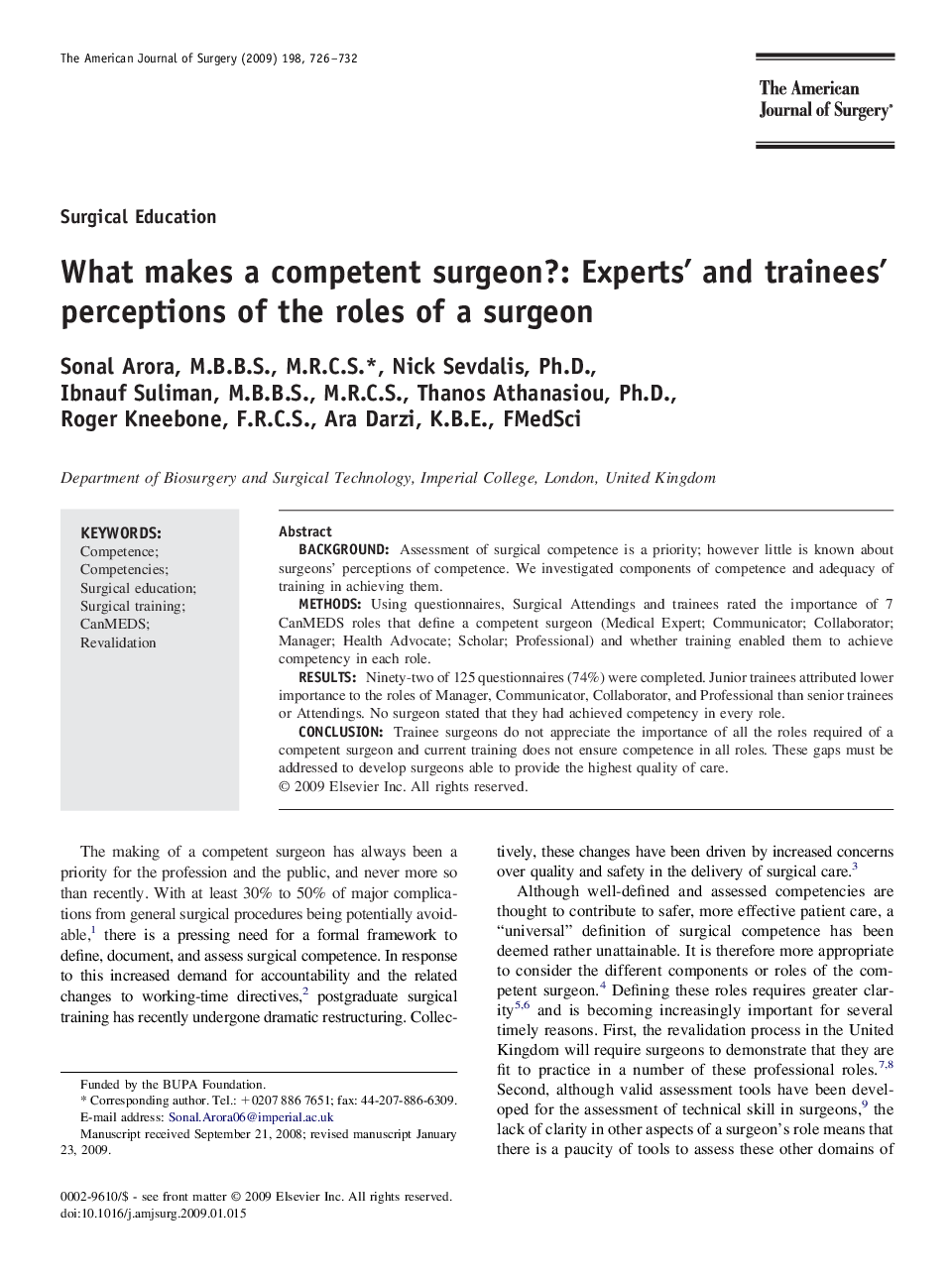| Article ID | Journal | Published Year | Pages | File Type |
|---|---|---|---|---|
| 4280656 | The American Journal of Surgery | 2009 | 7 Pages |
BackgroundAssessment of surgical competence is a priority; however little is known about surgeons' perceptions of competence. We investigated components of competence and adequacy of training in achieving them.MethodsUsing questionnaires, Surgical Attendings and trainees rated the importance of 7 CanMEDS roles that define a competent surgeon (Medical Expert; Communicator; Collaborator; Manager; Health Advocate; Scholar; Professional) and whether training enabled them to achieve competency in each role.ResultsNinety-two of 125 questionnaires (74%) were completed. Junior trainees attributed lower importance to the roles of Manager, Communicator, Collaborator, and Professional than senior trainees or Attendings. No surgeon stated that they had achieved competency in every role.ConclusionTrainee surgeons do not appreciate the importance of all the roles required of a competent surgeon and current training does not ensure competence in all roles. These gaps must be addressed to develop surgeons able to provide the highest quality of care.
